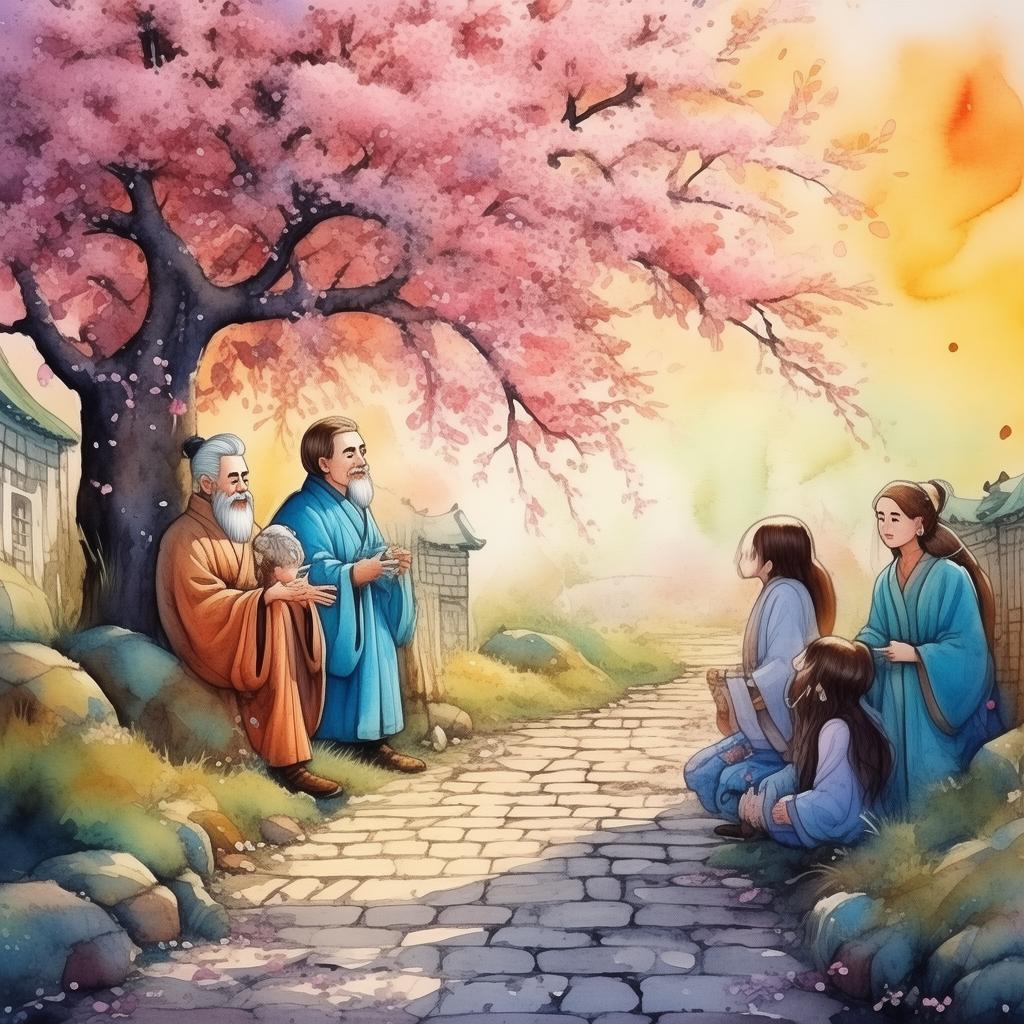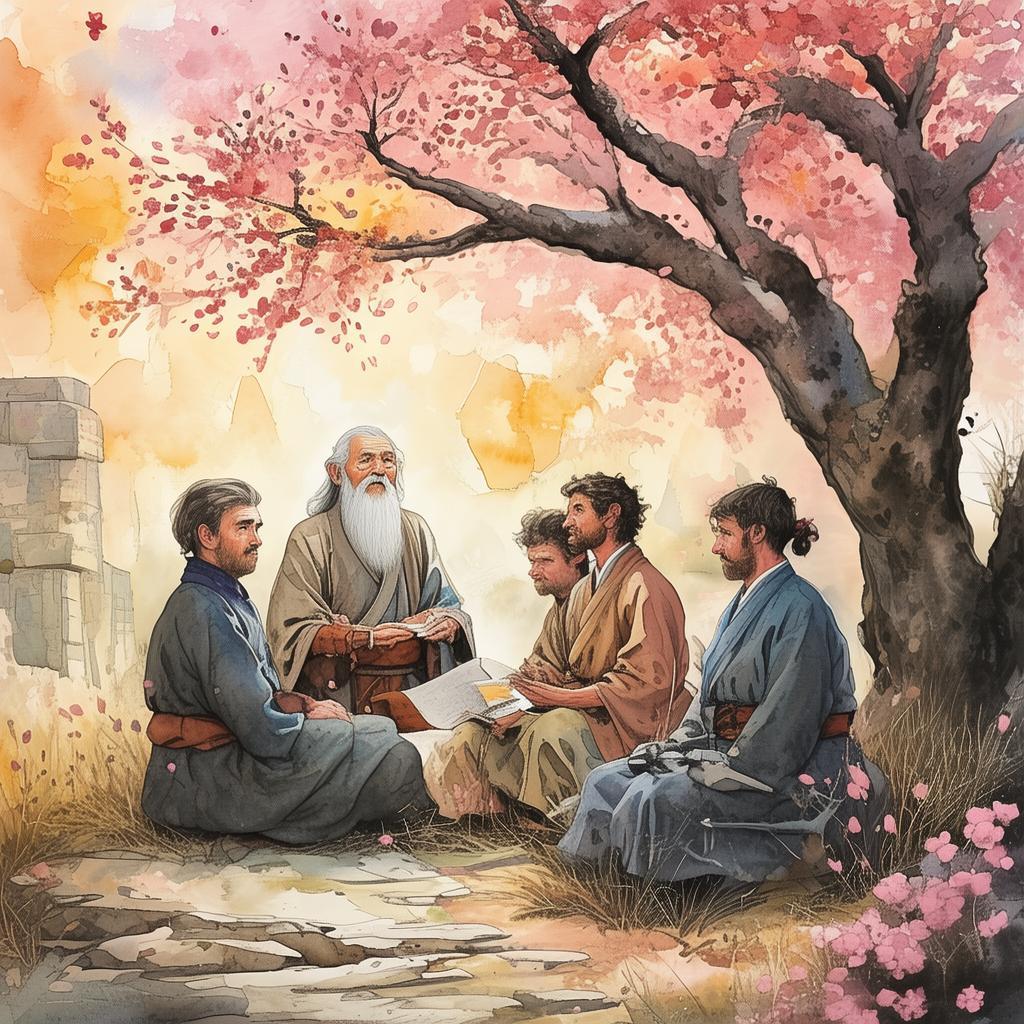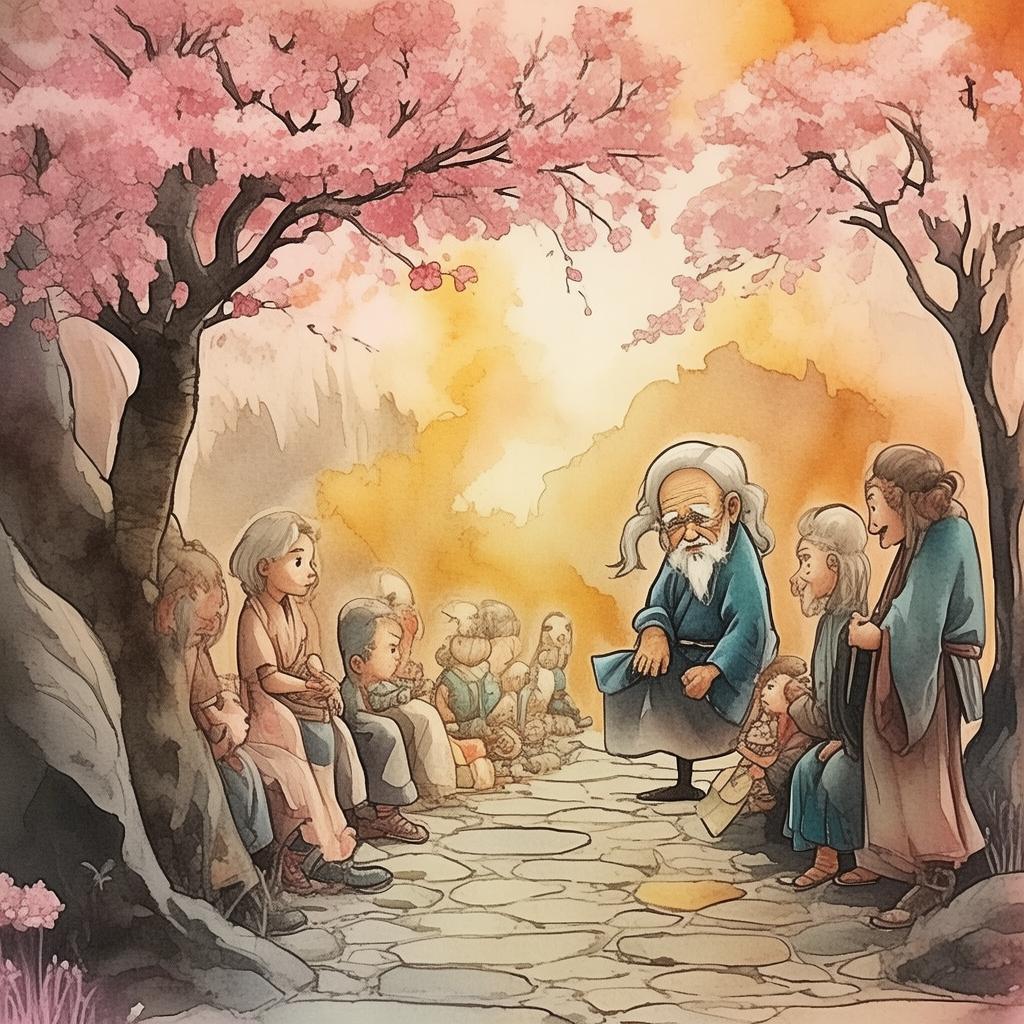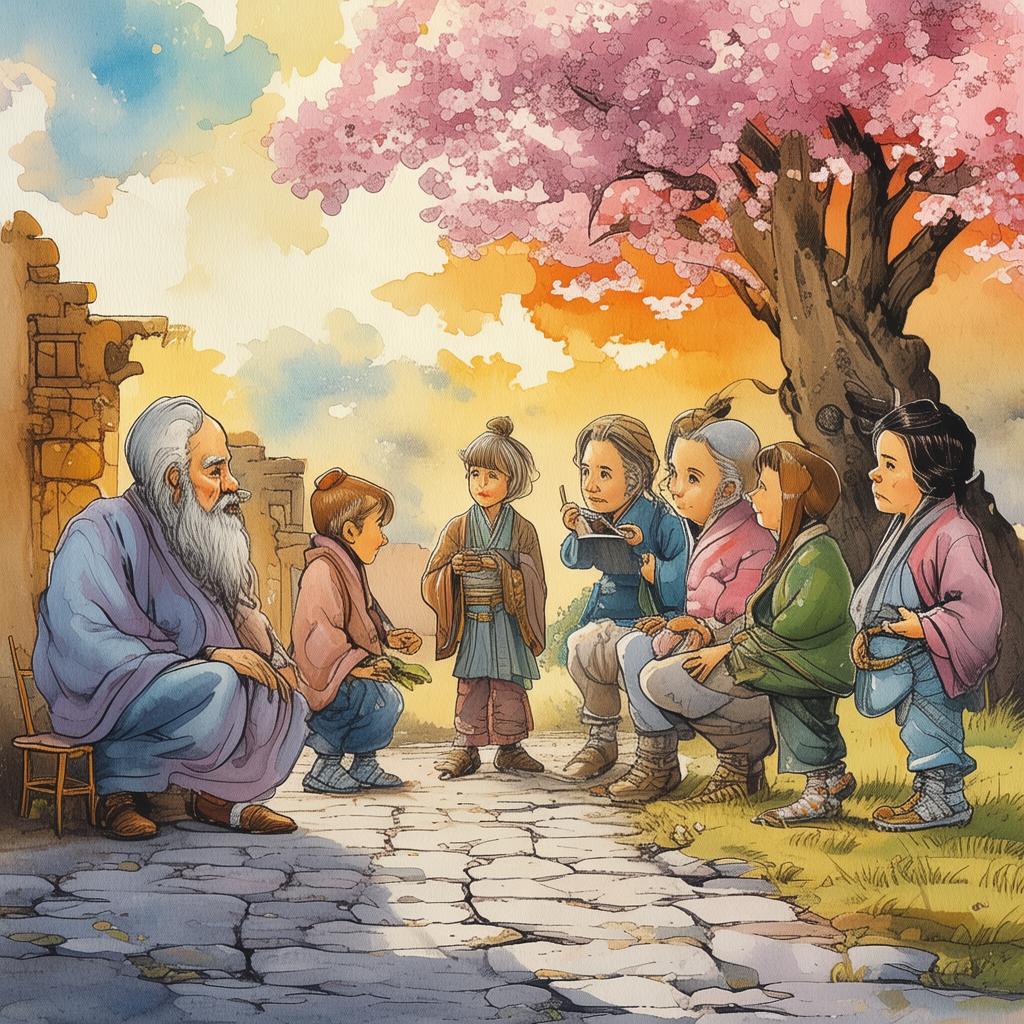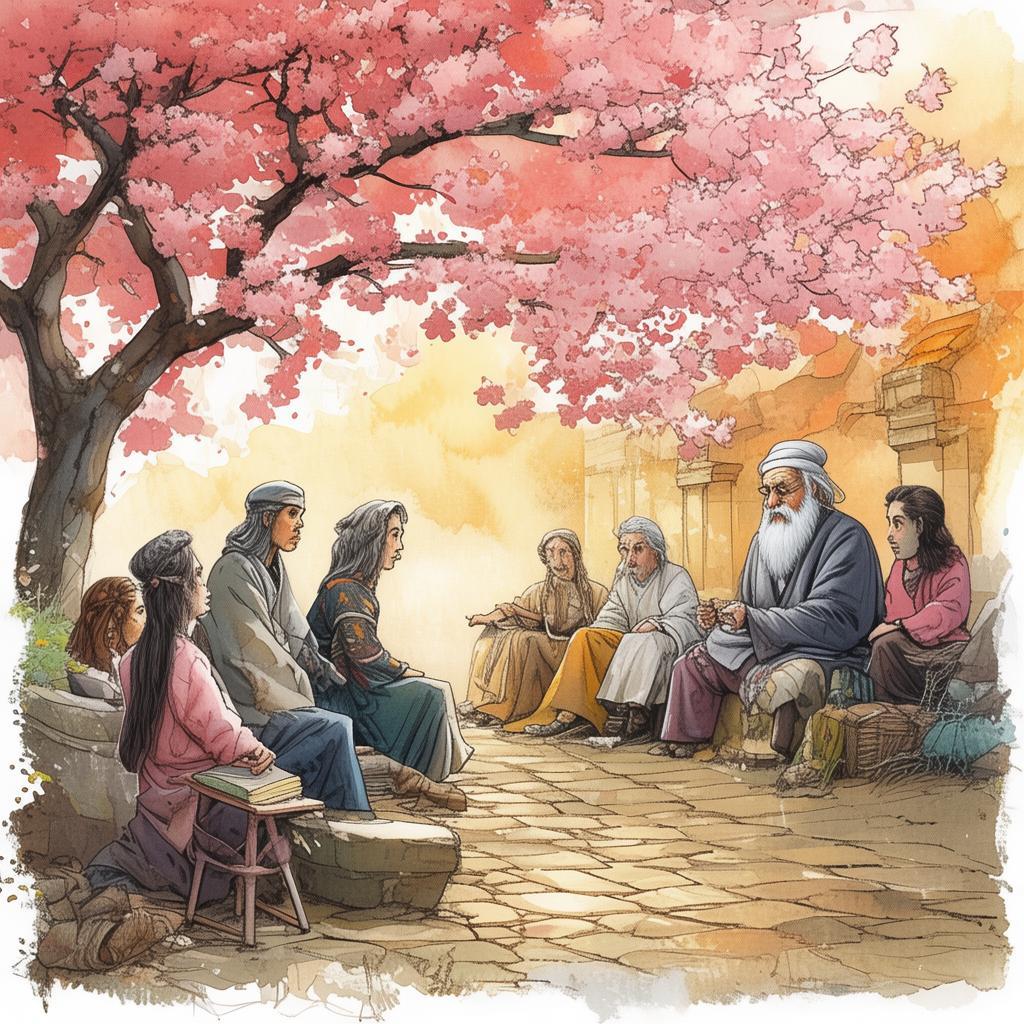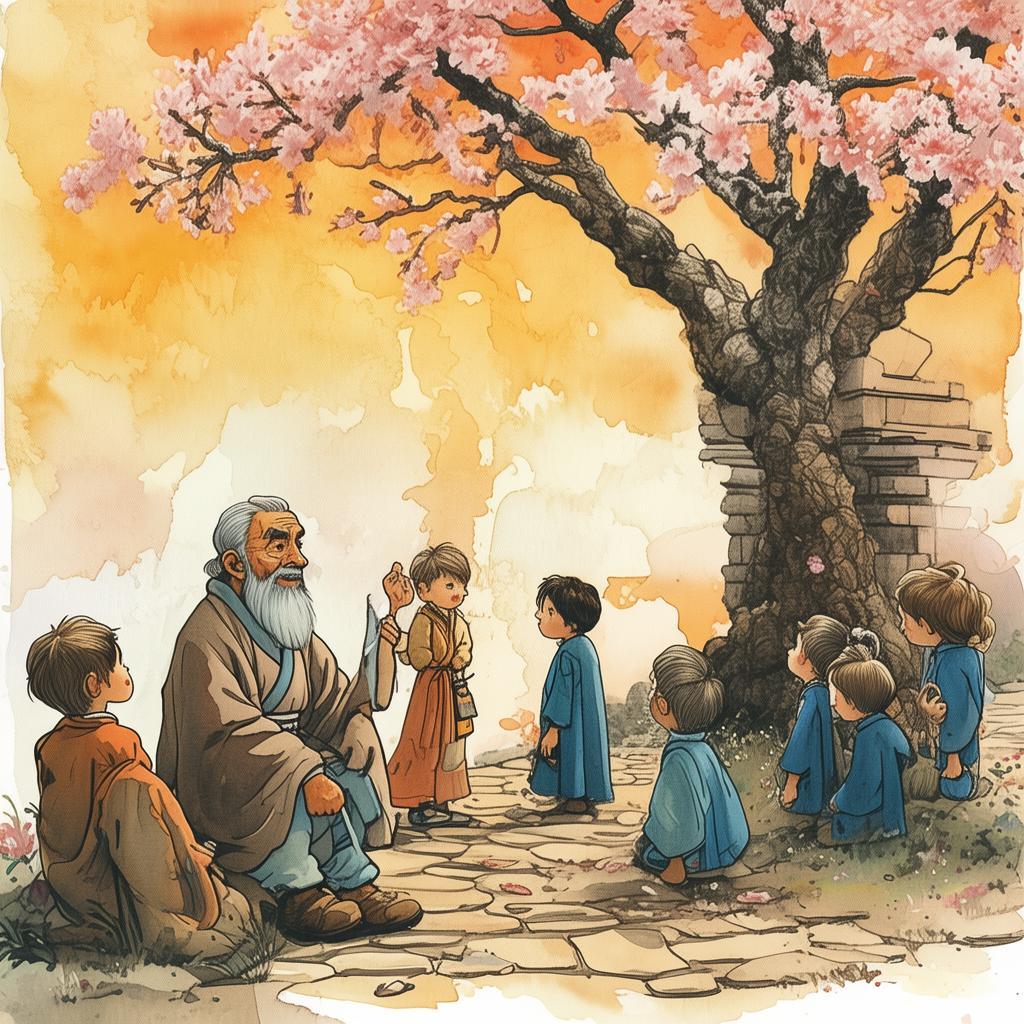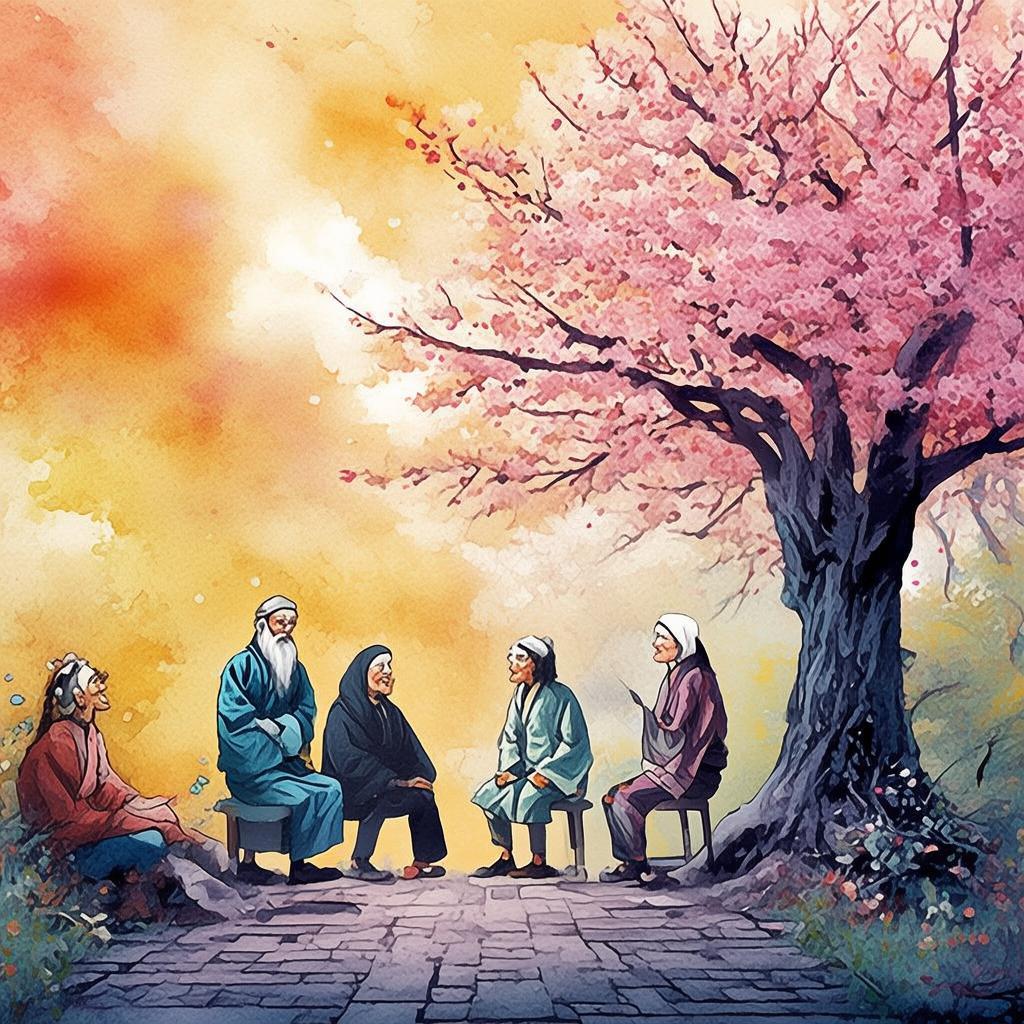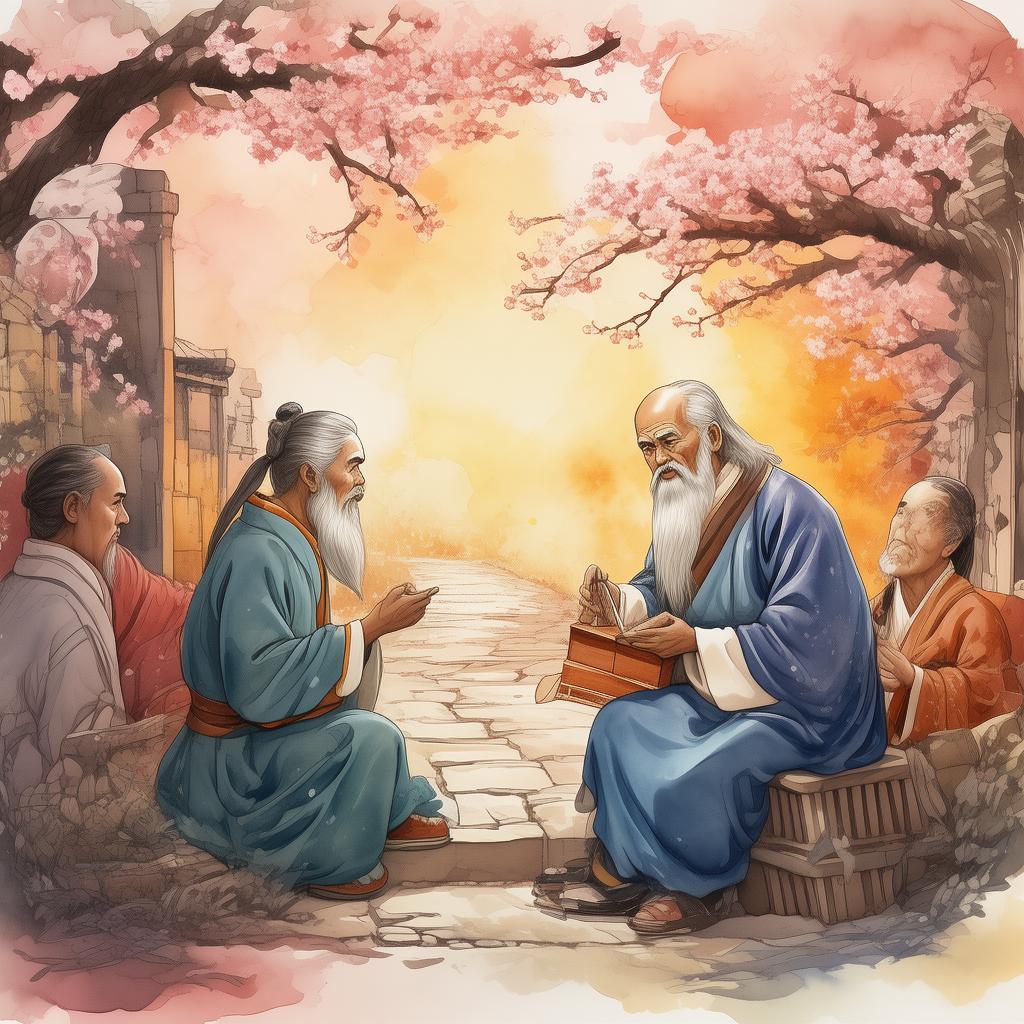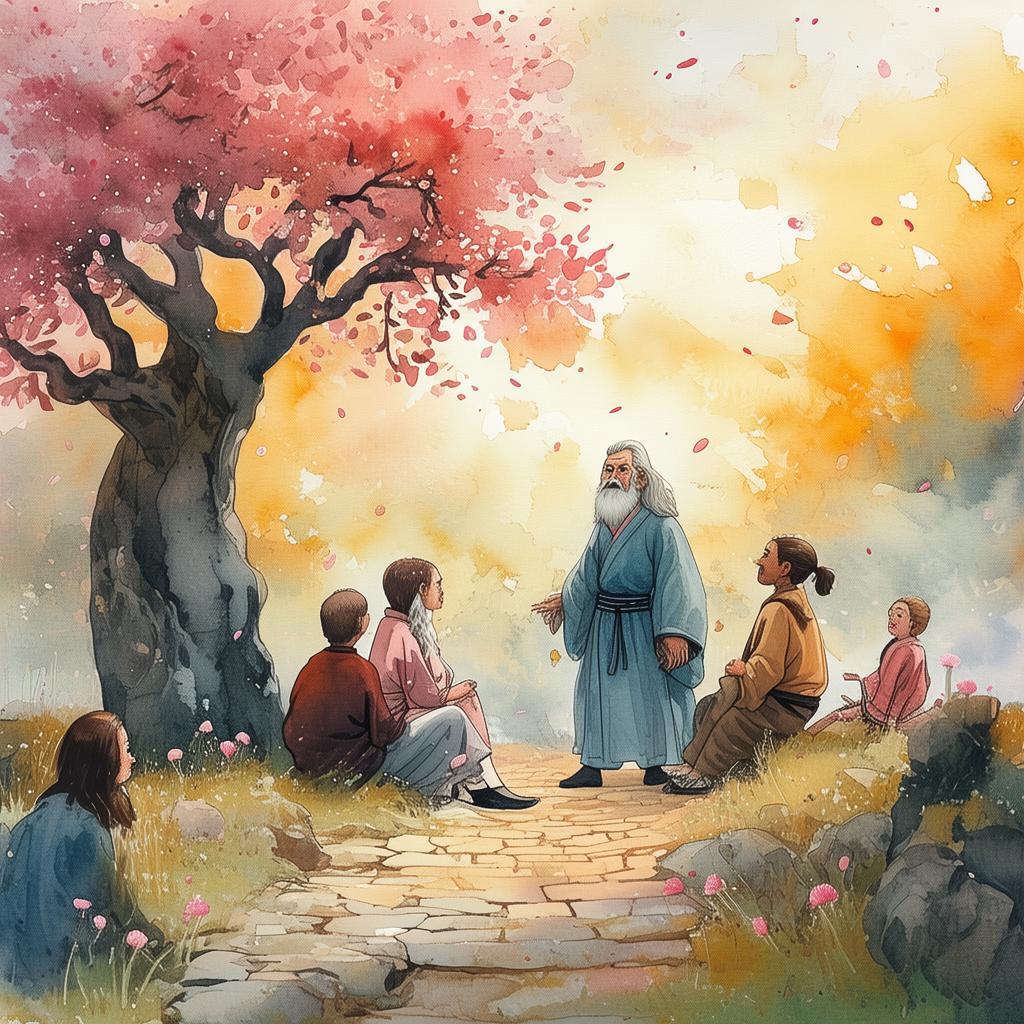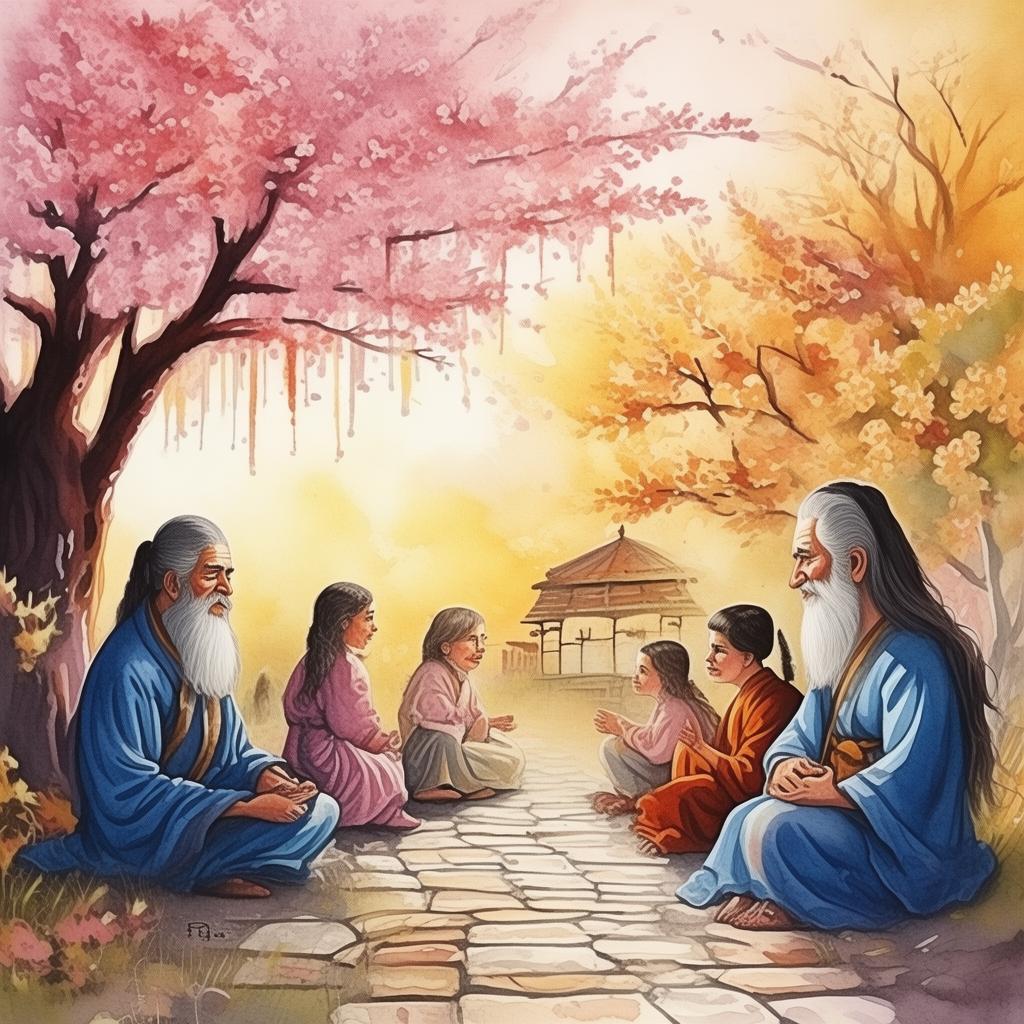The Symphony of the Pen: A Tale of Hope and Resilience
In the bustling city of Xin'an, where the opulence of the wealthy contrasted sharply with the squalor of the poor, there lived a young scribe named Lin. Lin was known for his exceptional skill with the pen, his stories and poems capturing the hearts of the city's elite. Yet, Lin's own life was a stark contrast to the grandeur of his writing. He was born into poverty, his family struggling to make ends meet in the shadow of the city's grandeur.
One day, as Lin was writing in the dim light of his small, overcrowded room, he heard a melody that seemed to rise from the depths of the city's underbelly. It was a hauntingly beautiful tune, filled with sorrow and longing. Intrigued, Lin decided to venture into the slums to find its source.
In the heart of the slums, where the air was thick with the stench of poverty and despair, Lin met a group of children. They were playing a makeshift instrument, a hollowed-out barrel with a string stretched across it. The children, though dressed in rags and their faces marked by hunger and hardship, played with a passion and joy that belied their circumstances.
Lin was struck by the beauty of their music and the resilience of their spirits. He approached them and asked if he could write about their story. The children, seeing the kindness in his eyes, agreed. Thus began a friendship that would change Lin's life and the lives of the poor in Xin'an forever.
Lin's next poem, "The Symphony of the Poor," quickly spread throughout the city. It was a tale of hope and resilience, depicting the struggles of the poor and their unwavering belief in a better future. The poem resonated with the hearts of the city's elite, who were moved by the stark contrast between their lives and those of the impoverished.
The wealthy began to take notice of the plight of the poor, and slowly, but surely, change began to take root. The city's leaders, moved by Lin's words, implemented reforms that improved the living conditions of the slum dwellers. Schools were built, and medical care became more accessible. The children of the slums, once confined to a life of despair, now had a chance to dream and aspire.
As the years passed, Lin's stories and poems continued to inspire hope. He became the voice of the poor, using his pen as a tool for change. The Symphony of the Poor became a symbol of the power of art to bring about social change, and Lin's name was synonymous with the fight against poverty.
One day, as Lin sat in his room, his pen in hand, he looked out the window at the city he had helped transform. The slums were no longer a place of despair, but a community of hope. The children who had played the barrel drum were now young adults, pursuing their dreams and contributing to society.
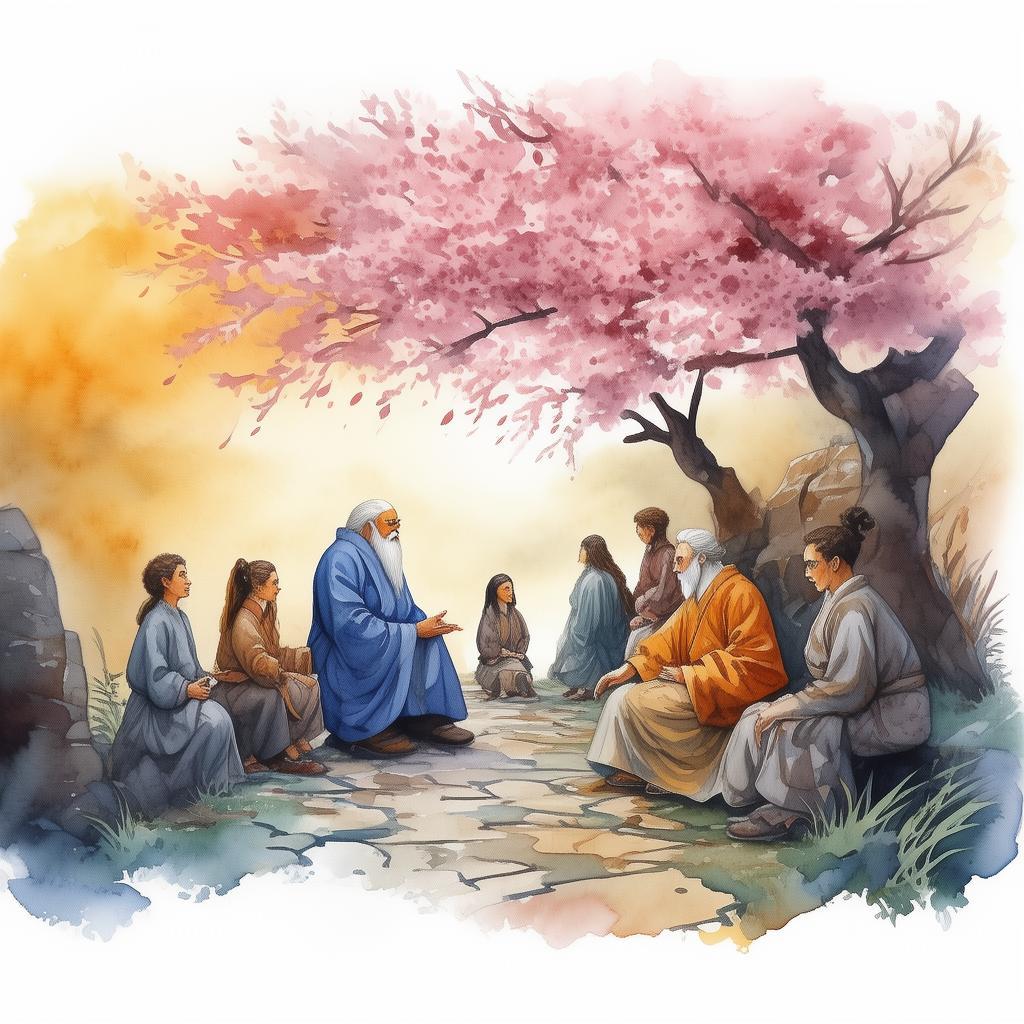
Lin smiled, knowing that his life's work had not been in vain. He had used his talent for writing to create a symphony of hope, a melody that had lifted the spirits of the poor and brought them closer to a life of dignity and prosperity.
As the sun set over Xin'an, casting a golden glow over the city, Lin closed his pen and took a deep breath. He had written his final chapter, but the symphony of hope he had created would continue to play on, long after he had passed away.
The Symphony of the Poor had become more than just a poem; it was a testament to the enduring power of the human spirit and the transformative power of art. And in the heart of Xin'an, where the rich and poor once lived in stark contrast, a new harmony had been born.
✨ Original Statement ✨
All articles published on this website (including but not limited to text, images, videos, and other content) are original or authorized for reposting and are protected by relevant laws. Without the explicit written permission of this website, no individual or organization may copy, modify, repost, or use the content for commercial purposes.
If you need to quote or cooperate, please contact this site for authorization. We reserve the right to pursue legal responsibility for any unauthorized use.
Hereby declared.
